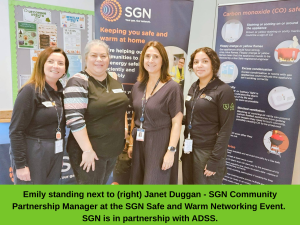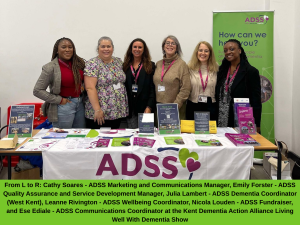
In the last of our series of blogs marking Dementia Action Week, we asked Emily Forster, Quality Assurance and Service Development Manager at ADSS, to tackle some of the most common myths about dementia.
“There’s a lot of confusion and misunderstanding around dementia,” says Emily. “That gets in the way of diagnosis, and of people with dementia getting the help and support they need to live well with the disease.” We asked Emily to put the record straight on five things people often get wrong about dementia.


The common thread that runs throughout all of these myths is knowledge and awareness. And, as Emily points out, diagnosis is key to both. “It’s so, so important,” she says. “The sooner you know, the sooner you can start taking steps to plan for the future, for example by making a lasting power of attorney, and to maximise your quality of life.”
At ADSS we passionately believe that with the right support people can live a life full of quality, dignity and purpose. All of our services are based on evidence and impact to help people live the best life they can after their diagnosis and beyond. Our dementia co-ordinators are also working one to one with people to support them through the diagnosis process. Want to know more about how a Dementia Coordinator could help you? Read Annette’s story.
Contact us to find out how ADSS could support you.